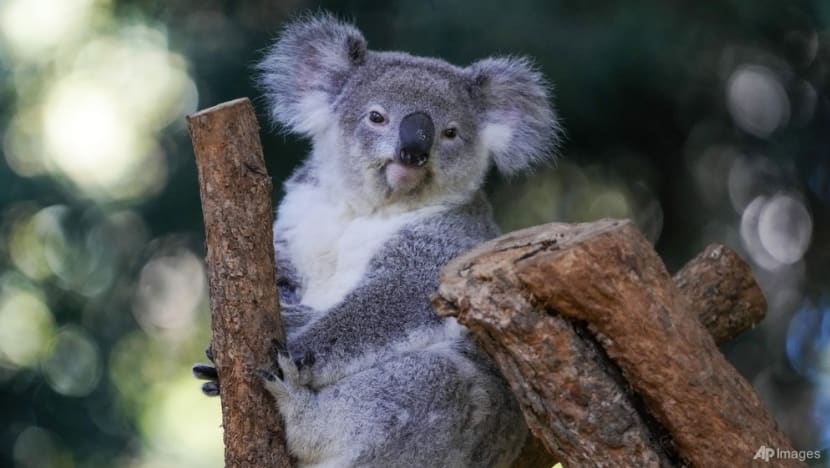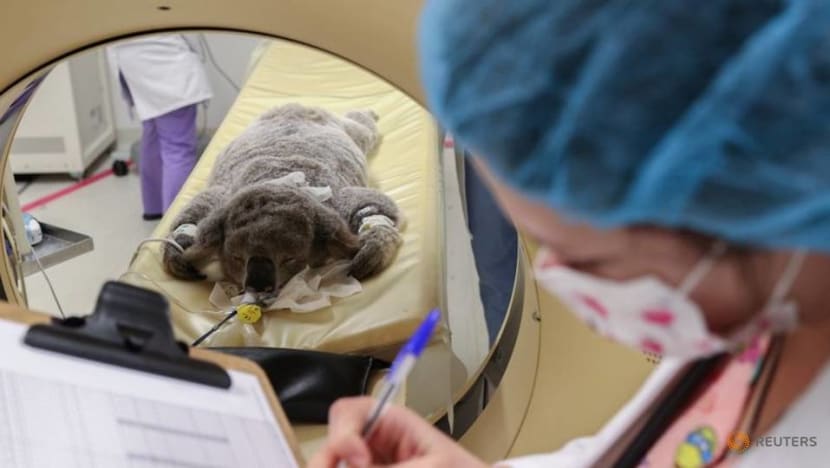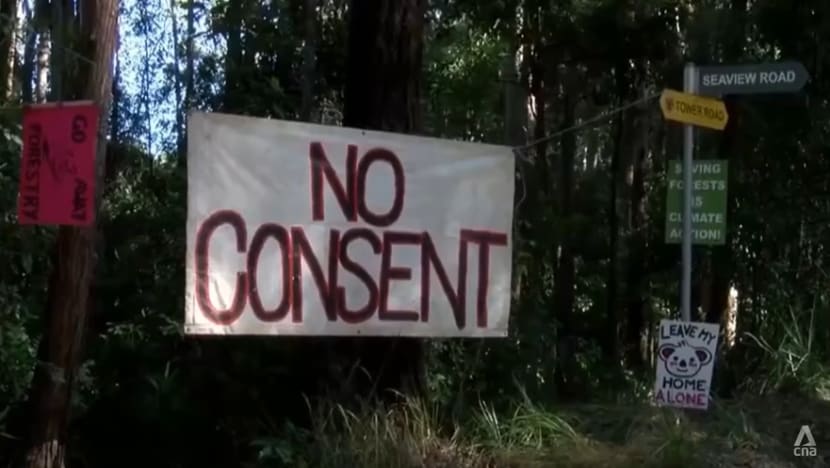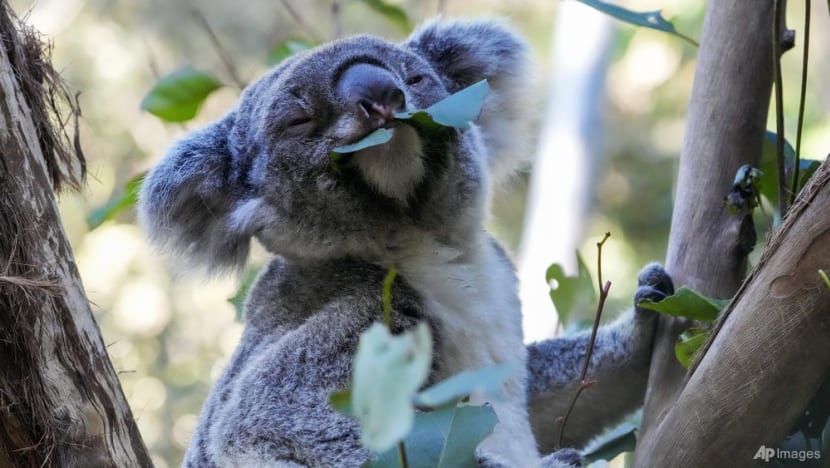Australia's koalas under serious threat as opening of national park delayed
Observers say state authorities are intentionally delaying the establishment of a koala sanctuary due to carbon credits.


This audio is generated by an AI tool.
BELLINGEN, New South Wales: A tug of war between conservationists, the timber industry and state authorities is threatening the survival of one of Australia’s most iconic and beloved creatures – the koala.
The New South Wales government has pledged to open a national park on the mid-north coast, covering thousands of hectares, for the state’s dwindling koala population.
But a report by public policy think tank The Australia Institute claimed authorities are deliberately stalling the opening of the sanctuary.
It said the government wants to first secure another way to make money from the trees before putting an end to logging and land clearing, which involves exploiting the forest for carbon credits.
KOALAS FACE EXTINCTION
Environmental groups have warned that koalas in New South Wales could be extinct in the wild by 2050 unless there is urgent intervention.
Two years ago, they were classified by the Australian government as an endangered species in the state, as well as in Queensland and the Australian Capital Territory.
While estimates of how many koalas live in the wild vary because they sit high in the trees and are difficult to spot, scientists believe its population along the nation’s east coast has halved over the past 20 years.
They are under threat from a loss of habitat and countless other problems, including climate change, logging, road traffic, disease and bushfires.
The Black Summer bushfires of 2019 and 2020 – one of Australia’s most catastrophic fire seasons on record – killed an estimated 5,000 koalas and affected almost a quarter of their habitats in New South Wales.
SLOW PROGRESS ON KOALA HABITAT
The Great Koala National Park – comprising existing national park and public forest land – was proposed to provide a safe haven and protect the tree-dwelling marsupial.
However, progress has been slow, with observers accusing state authorities of intentionally delaying the park’s establishment.
“A big reason for the delay and the gazetting of the park is that the government wants to monetise the trees for carbon credits,” said Mr Stephen Long, a senior fellow at The Australia Institute.
“It doesn’t want to gazette the park until it’s got a carbon credit method in place and approved.”
At a budget estimates meeting in the New South Wales parliament in October last year, state premier Chris Minns hinted he would not halt the felling of trees until he was certain of a scheme for carbon offsets.
He said then: “There are many governments and countries around the world who are desperate for carbon offsets and we’ll be looking at jurisdictions like New South Wales in relation to that.”

LOCAL EFFORTS TO STOP LOGGERS
The state government owns the Forestry Corporation, which in turn runs the timber industry.
While logging has been temporarily suspended, conservationists fear it could resume at any moment.
Some local activists have set up barricades to deter loggers.
“We’re here to stop equipment from getting into the forest,” Ms Gill Everett, a member of the Bellingen Activist Network, told CNA on the side of a road leading into a forest, where advocates have set up tents, foldable chairs and anti-logging signs.
“My day started at about 5am. I left home this morning to be here at 6am because we thought there was forestry equipment coming in.”

Fellow activist Anne Coyle, who has lived in the area for the past four decades, said she is determined to stop logging lorries from driving into the parks because she believes there is so much at stake.
“The koala is at the absolute brink. This is our last chance. If we don’t make the most of this chance, it’s all over for the koala,” she said.
A TRAGEDY IF KOALAS BECOME EXTINCT
Advocates said that delays affecting the opening of the sanctuary will lead to serious consequences for the long-term survival of koalas.

Susie Russell, vice president of conservation group North Coast Environment Council, said she believes the problems facing the species are symbolic of a much greater existential threat.
“If the koala goes extinct, we can expect a whole range of other species to become extinct,” she added.
“Ultimately that will lead to the collapse of society as we know it. So, if we can’t save the koalas, we’re not going to be able to save ourselves.”
The Australia Institute’s report concluded that trees should not be monetised. Instead, they – and the animals that call Australia’s forests home – need to be protected.
“The koala is an endangered species that is dear to the hearts of Australians and people all over the world,” said Mr Long.
“It would be a tragedy of immense proportions if koalas were allowed to die out in the wild.”



















